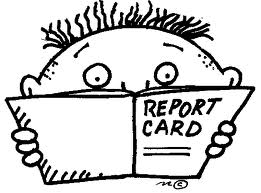There are new artic norms available! Continue reading
Category Archives: Articulation/Phonology
RRRRRacing toward good speech?
Okay…that’s a little cliche and I admit it…
Okay…that’s a LOT cliche…but there’s a reason.
I had the privilege of reviewing a new up-and-coming app prior to it being released and I’m here to share my thoughts with you regarding it.
The people at Complete Speech have created a new app called Speech Racer Lite. (For those who have read my reviews before, I reviewed another app of theirs called Vowel Viz a while ago.) Speech Racer provides biofeedback for each R word said.

Speech Racer Lite is designed to give students a “fun, interactive way to practice ‘RRR’ sounds.”
This is the Lite version – the full version will be released in August. The full version will have self-scoring, over 300 flashcards with visual cues, and the ability to customize R targets in different positions, including blends.
FIRST IMPRESSIONS
It looks as though the app is well thought out and full of detail. I wasn’t able to access some of the elements as they are reserved for the full version (which isn’t available yet). However, they seem to have thought about everything important.
Word lists include Initial, Medial, and Final R words (over 300 flashcards!) I REALLY like that they have the R Blends and post-vocalic /r/ separated into their own words (to me this is critical for a good /r/ app).
There will be four activities av available in the full version.
The Lite version has two activities available. These are both meters that show how accurate the R production was. The student is directed to prolong the R to make it a bit more noticeable (more on this later). The meter will then flash up to the “rating.”
In the first one, a poor /r/ sound will result in a red light…an approximate /r/ sound will result in a yellow light, and a good /r/ will result in the green light and running lights being illuminated. The lights stay illuminated until the record button is pushed again.
In the second meter, the meter goes from Red (empty) to Green (full) based on the quality of the R.
I can see the benefit of the biofeedback for R as it can be very tricky for kids to master self-monitoring. Having the immediate feedback helps with correct placement and recognizing what it is that the student had to do to get that /r/.
My only concern is that it doesn’t necessarily facilitate a “true” /r/ in that it does need to be slightly exaggerated to be picked up by the device. However, that is a minimal concern and similar to producing an exaggerated /s/ and then shaping it into a true /s/…an exaggerated /r/ is fairly easy to shape into a true /r/ once they get the feel for the position and develop the self-awareness.
Overall, I think this app has some potential. I’ve been a fan of Vowel Viz for a while now, but I can see many of the students on my caseload responding better to this than Vowel Viz. I know I’m excited to try it with them and I’m definitely looking forward to the full version.
Be sure to check out Speech Racer here and check out Complete Speech here.
So…let me know. Do you think you can see a need for Speech Racer Lite in your future?
Until then….Adventure on!
Mary
Disclaimer: I was provided with a code for Speech Racer Lite; however, the review and thoughts are entirely my own.
Milestones? Nah…why bother!
Happy Better Hearing and Speech Month! This post has been sort of percolating for a while and with Better Hearing and Speech Month’s focus on early intervention and the recent influx of new grads it seems relevant.
Recently, while speaking with many of my SLP friends on twitter, some expressed distress that articulation norms are so often misunderstood or misused. I wanted to write a post about it a few weeks ago and prudence dictated I wait until I wasn’t quite so…frustrated.
Then, a couple days ago, I had the distinct pleasure of reading a post on the way language milestones are often misunderstood. That post, from Teach me to Talk, is available here. I have to say, I honestly hadn’t considered how language milestones are interpreted…but it’s absolutely true they are misunderstood or maybe ignored much the way articulation norms are misused.
But it really drove home how we tend to view milestones or normative charts not as how they were meant to be used – but how they best work in our favor. Continue reading
Articulation norms…Or are they?
There’s a fine art to biting your tongue and walking away and diplomacy is a worthy skill to acquire and hone. Recognizing that we all have differences, is another skill that is fabulous to have. However, sometimes, it’s necessary to find a way to correct a wrong, particularly when it’s a common wrong. (Are you confused yet? Bear with me…please?)
This post has been a while in coming…and I’m fairly sure it will exasperate some and anger others. I sincerely hope that most of you will find it enlightening rather than annoying. I have bit my tongue and walked away from the computer screen a lot lately…now I’m attempting to correct a wrong. Continue reading
Articulate It! an App review
I haven’t done an app review in a while and it’s time. Now one of my all-time-favorite apps has been recently updated, and I think it’s time to share the love.
Articulate it! is easily the first app that I think of when I consider articulation drill (and that’s saying something since I authored the phono learning center app for phono therapy!).
Here is WHY I love it… Continue reading
Treating Speech Sound Disorders
It is the second Tuesday of the month, which means it’s time for Research Tuesday. As always the interpretation of the research is mine and side comments are placed in [brackets].

Today’s post is brought to you by the letter I… errr…. the Language, Speech, and Hearing Services in Schools journal. Continue reading
Vowels, vowels, who has the vowels…
Also known as HOW can I get a good /r/ out of this kid? 
I’m fairly sure /r/ is one of the most hated sounds to have to work on, simply because it can be so tricky and there are SO many variations. But, I’ll tell you a secret if you promise not to tell anyone…I secretly like it. It’s a challenge. I’d much rather have a kid with a severe sound-system disorder (read phono) than a simple artic issue. I know…I’m weird. Even though I like a challenge, I’m always on the lookout for an app or some tool to help make it a bit easier for our kids. I mean, /r/ is challenging enough without prolonging it, right? Keep reading for a chance to win! Continue reading
Adventures in Advocacy…part two
Creatively known as How many ways can we fail a student?
Alternately known as Let’s describe Educational Impact.
Otherwise known as What do you mean it’s my fault he can’t get a job?
Hmmm. Did that last one get your attention?
One topic of conversation that’s popped up here, on Facebook, on the ASHA forums, etc. has been eligibility requirements for schools based services. Many SLPs have the understanding that children with only one or two speech errors are not eligible for services because they are not “severe” enough. I have been told that some schools do not do ‘articulation’ therapy at all as it’s not educationally impacting. Or the students were dismissed because of “time constraints.” I realize it’s not the SLPs that are doing this, it’s administration…but wow. What a way to fail our students.
Adventures with R Intensive
Do you have a student or client working on /r/?
As a school SLP, I have … several. No matter how quickly I dismiss one, two more seem to spring up to take his place. There haven’t been a lot of apps that target just /r/, but I found one that I absolutely love!
Adventures with Academics…no wait… Education
In the past week, I have had several instances where the phrase “does it impact his/her education” has come up. 
The first, was a discussion I was having with my principal and a few teachers. The Principal mentioned how in one of her previous schools, an older elementary student (5th or 6th grade) had an /r/ problem and was not being seen because “it didn’t affect his education” since he had all As and Bs.
In another instance, a discussion was held in an online forum where SLPs were not allowed to help students with single-sound errors because it was “not impacting their education.” In yet another instance, in the ASHA School Based Issues list-serve the need for “educational impact” was raised.
What I’d like to know is: when did grades become all of education?






